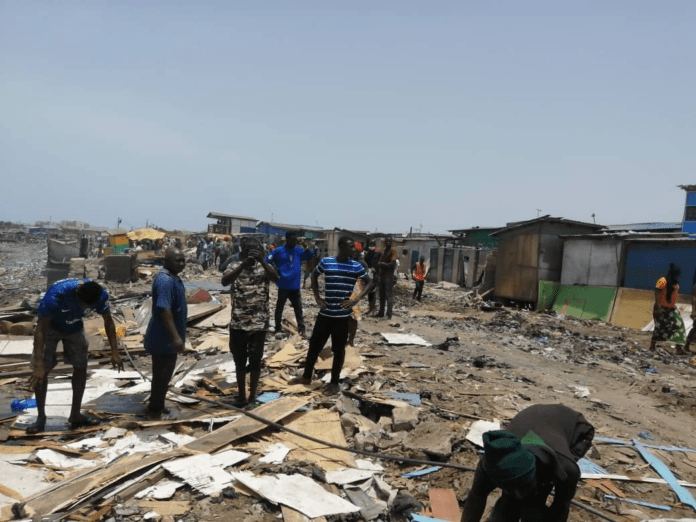Bashiru Adeyinka, 52, looks beaten, as he scavenges through thick waste inside the choked toxic Korle lagoon. He goes through the waste earnestly searching for plastic bottles for recycling.
The number of plastic bottles he lays his hands on will determine the size of his dinner. With his eyes set on the prize of rubbish and his bare hands running through it without any care, I try to distract him by asking what he knows about the coronavirus. My question seemed to have stung him; he replied sharply: “Are we the ones who caused the viruses?”
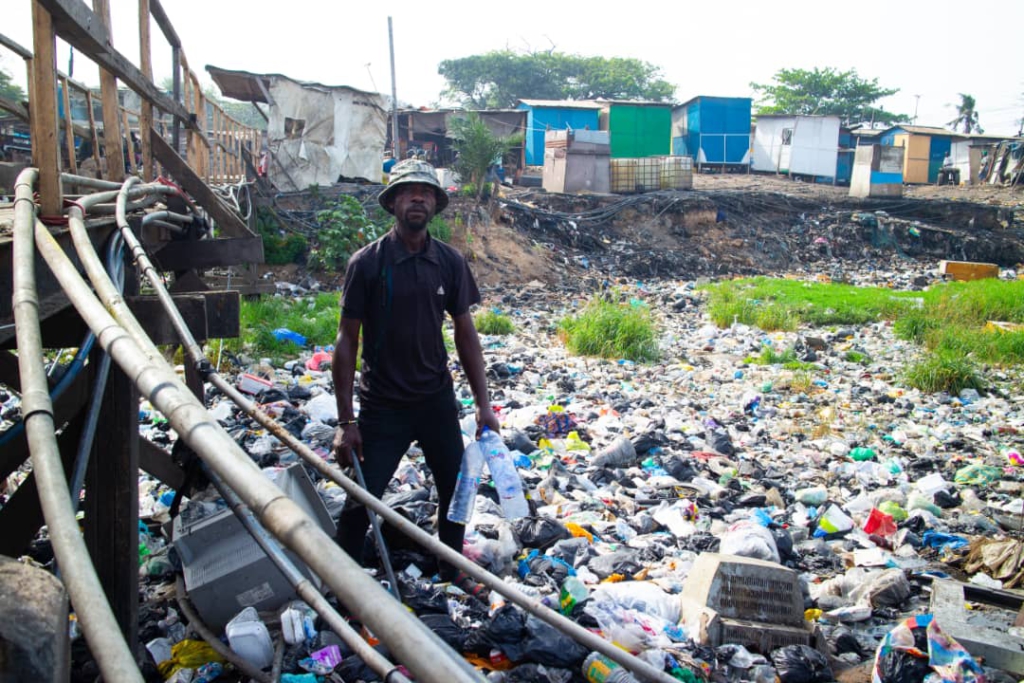
Bashiru Adeyinka who is Ghanaian-Nigerian and a resident of Ghana’s biggest slum Old Fadama added, “they say the viruses are in the air. Rich people travelled and brought the virus and then they are telling us to stay home when we are hungry.”Inside The Slum-online
When the President of Ghana imposed a lockdown, life was a real squeeze for him. He recounted never benefitting from any of the free food programmes introduced to help the poor.
To survive, he resorted the search of not only plastic but also for food in the trash dump. “Look at what I found… palm oil in the rubbish, I will use it to cook tonight”. Bashiru shakes his head and tears filled his eyes yet he proudly fought back but the tone of his voice falters, pregnant with emotions.
Old Fadama has over 120,000 residents squeezed on less than half a square mile and with people crammed in 10-foot by 10-foot wooden shacks, social distancing would be a very big challenge. Also, frequent handwashing, use of hand sanitizers, face masks are luxuries that the majority of the people here cannot afford.
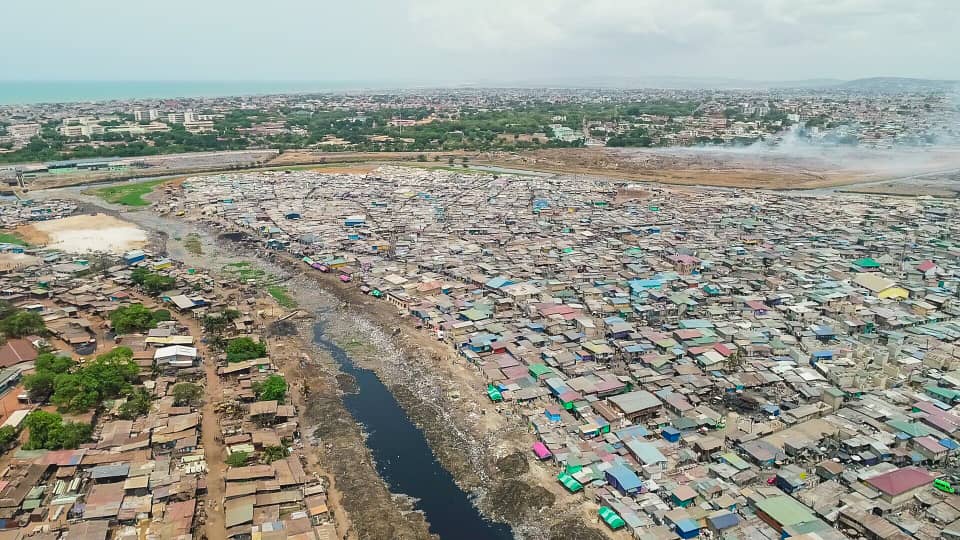
A virologist with the Kumasi Centre for Collaborative Research, Dr Michael Owusu, has warned that it would be disastrous if one person gets the coronavirus in densely populated Old Fadama. “If one person gets it… sneezing, coughing, leaving respiratory droplets it would easily be transmitted. Knowing that 30 per cent of people can transmit it through their stools, there is a higher chance it will spread fast in slums,” he said.
With all the conditions ripe for a possible outbreak, public health experts can only hope the disease would not break out in the slum.
But people like Bashiru care less about the coronaviruses. He would rather die with his belly full than for the virus to hit him hard when he is famished and weak.
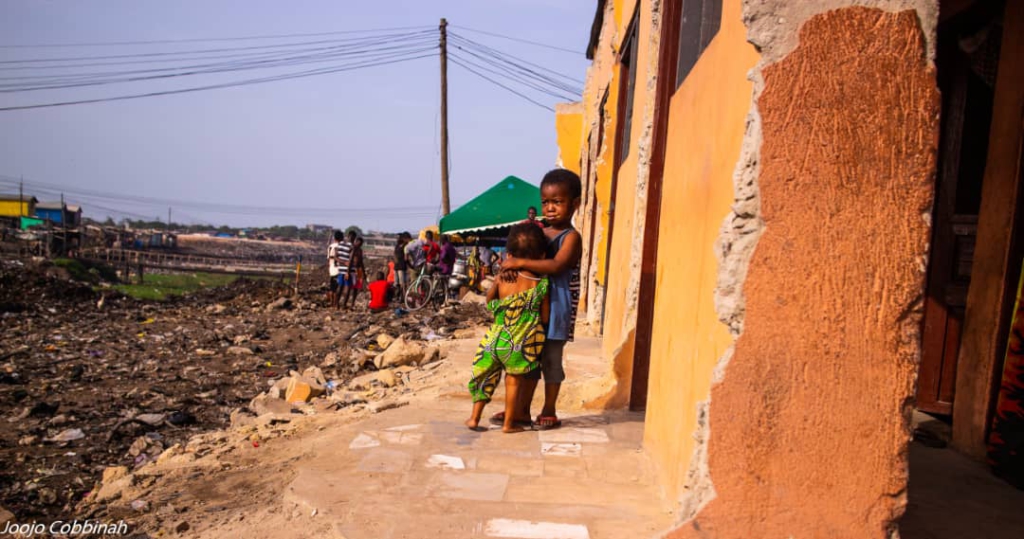
The ‘un-relieving’ presidential reliefs
President Nana Akufo-Addo has earned praise for providing free water to Ghanaians for the months of April, May and June. The President also announced free electricity for lifeline consumers (person who consume 0- 50 kilowatts hours per month) for three months.
The President also added that 50 per cent of the electricity bill for residential and commercial consumers would be covered for the months of April, May and June, using March as the benchmark.
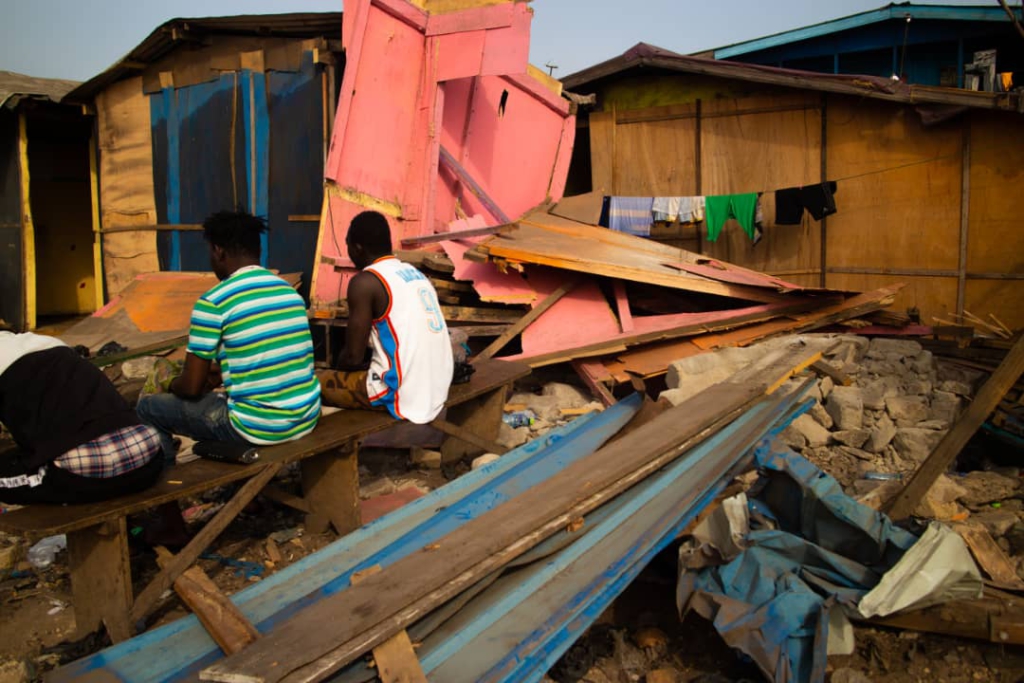
This would bring some relief to many across the country but the urban poor without their own direct connection to Ghana Water Company would not benefit from this package.
Adobea Adwoa wears a worried look. “I never got some of the food they shared. The government said free water and electricity for three months but in this community, we spend two cedis to take a shower and 70 pesewas for the toilet. The people who give us electricity will also charge us. Nothing is free here”.
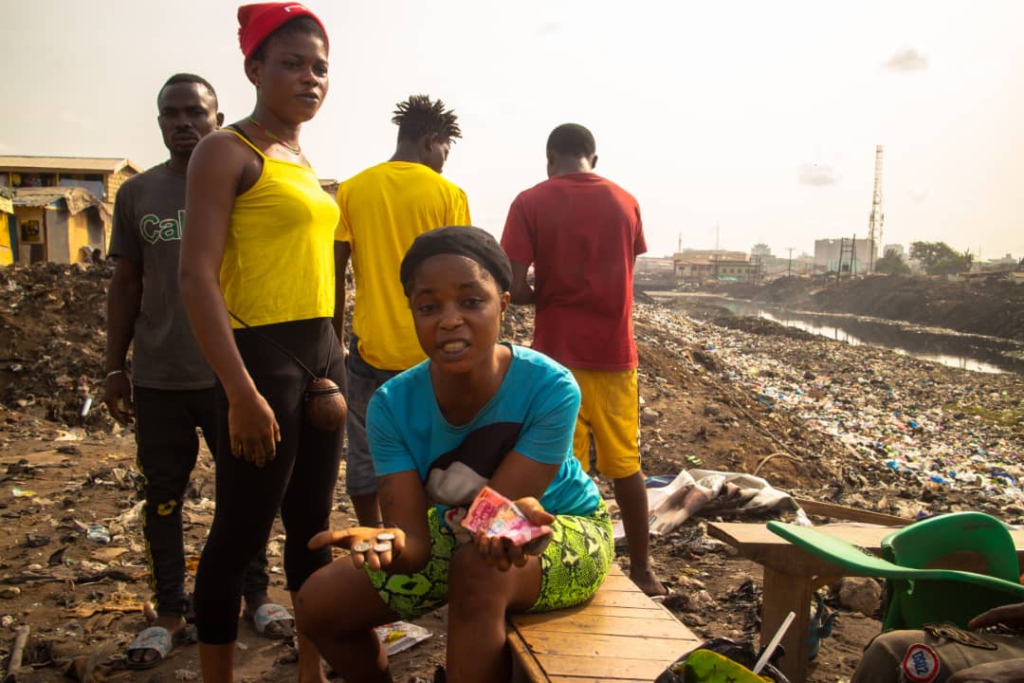
Adwoa firmly maintains that only the rich have benefitted from the presidential reliefs. “They destroyed my kiosk, now I have nowhere to sleep. That is why I am sitting close to the Korle lagoon,” she added.
23-year-old Muntaru Amari, from Bimbilla in the Northern region had high hopes of making it in Accra. Her age mates went to Accra and returned home with cloths, sewing machines and gifts for their families. She made plans immediately, migrated to Accra and settled in Old Fadama, where the hustling begun all in the quest to lift herself and family out of poverty.
Amari started working as a head porter to earn a pocket change and eventually saved enough to rent a wooden kiosk where she sleeps but her building was demolished by the Accra Metropolitan Assembly because residents there had built in the reserve of the Korle lagoon.
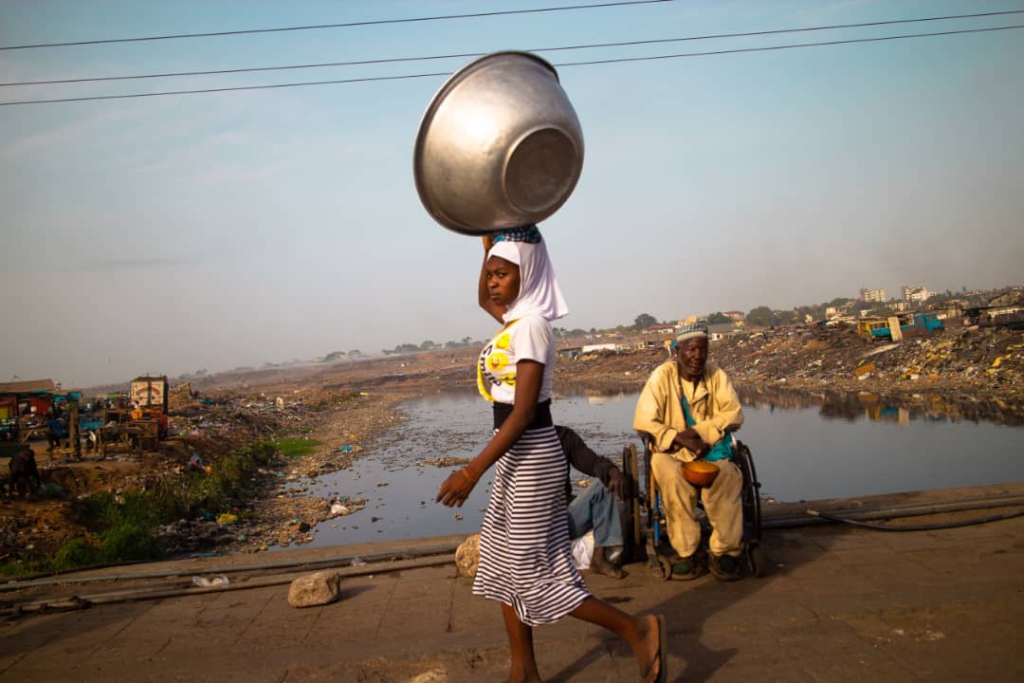
“Because of the coronavirus, Nana (President Akufo-Addo) said lockdown. Now we have finished the money we saved and then they destroyed our rooms again,” she cried out.
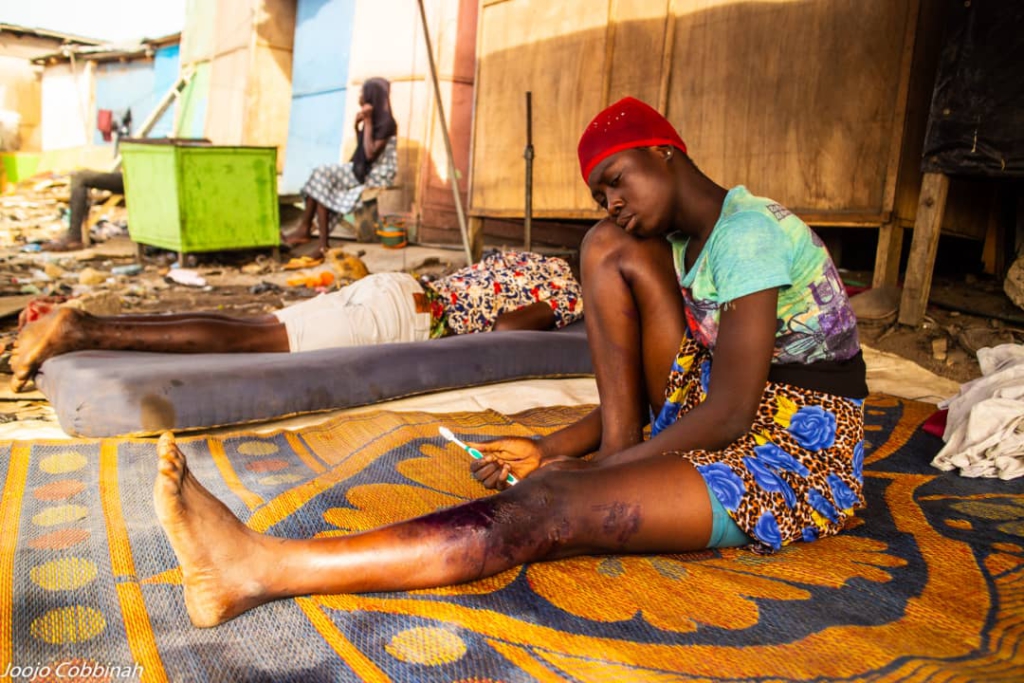
She points at a dirty open space which looked like trash dump with heaps of silt mixed with plastics and shit dredged from the lagoon. “They (AMA) brought us canopy but this will not save us from the rain. We sleep close to the lagoon so mosquitoes will also chew us,” she added.
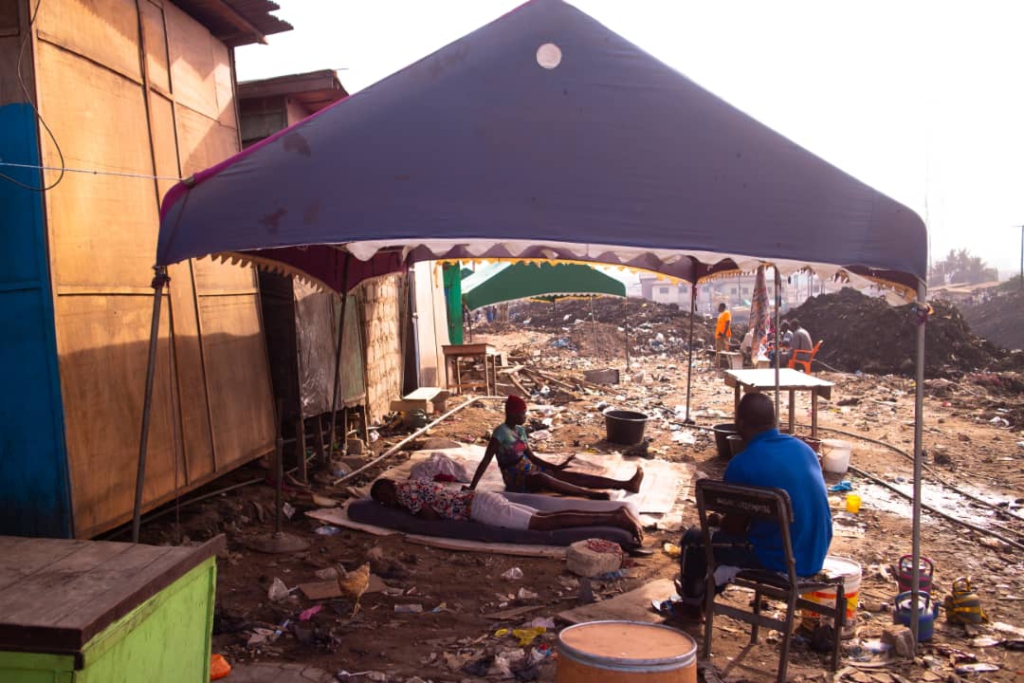
It is actually hard imagining human beings spread mats and mattresses and lay in a field blanketed with rubbish and inhaling, suffocating gut wrenching smell wafting from a heavily polluted lagoon. But that is the reality of many people here in Old Fadama.
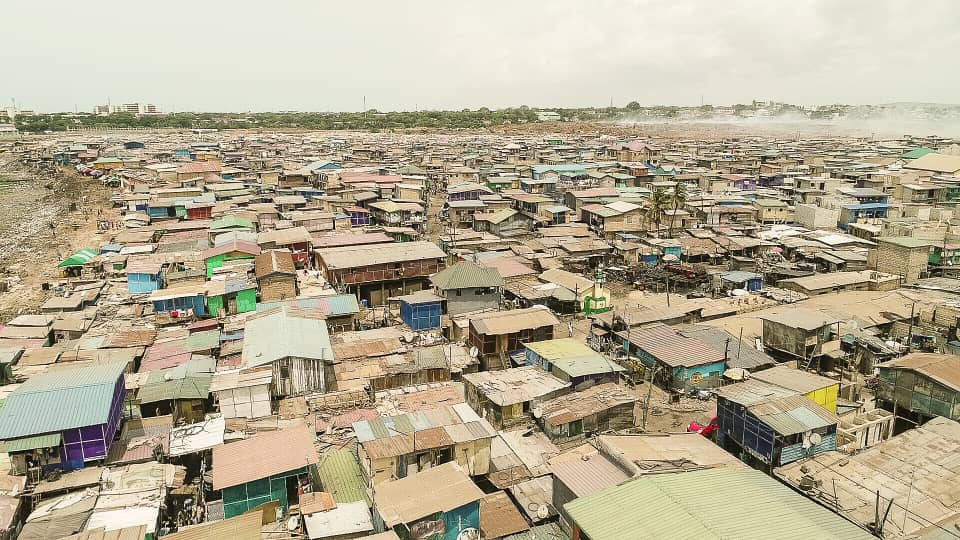
The Minister of Gender and Social Protection, Cynthia Mamle Morrison announced during government lockdown to flatten the Coronavirus curve, that 15, 000 Kayayei (head porters) without accommodation would be housed. “For those who have the apartment we will find a way of sending them logistics to keep them from coming to town… there will be enough food there will be enough water…”, she added. But many head porters like Amari said although they saw people sharing food, they did not get their share. Food sharing times in many communities were chaotic, with no respect for social distancing and sometimes required a high level of cunningness or aggression to receive your share.
The Presidential visit and failed promise?
On September 19, 2019, the Old Fadama was thrown into a frenzy jamboree. The second most powerful man in Ghana, Vice President Dr. Mahamudu Bawumia accompanied by a number of government officials including Dr. Mustapha Abdul-Hamid, Minister for Inner City and Zongo Development; Hon Dominic Nitiwul, Minister for Defence; Hon Ambrose Dery, Minister for the Interior; Hon Hajia Alima Mahama, Minister for Local Government and Rural Development; Hon Samuel Atta Akyea, Minister for Works and Housing, Hon Cecilia Abena Dapaah, Minister for Sanitation; Hon Nii Adjei Sowah, Mayor of Accra visited the slum and promised the people that government will not evict them.Vice President
Volume 0%
He promised to improve the living conditions of the people. “I came here not to just observe and leave without solving your problem. I came to solve your problem. The lives of the people of Agbogbloshie matter as much the lives of people in East Legon or Cantonment. The president said the services we give to East Legon, let’s give the same services to the people of Agbogbloshie”, he chanted. The people screamed and gave thunderous applause to the promise they received.
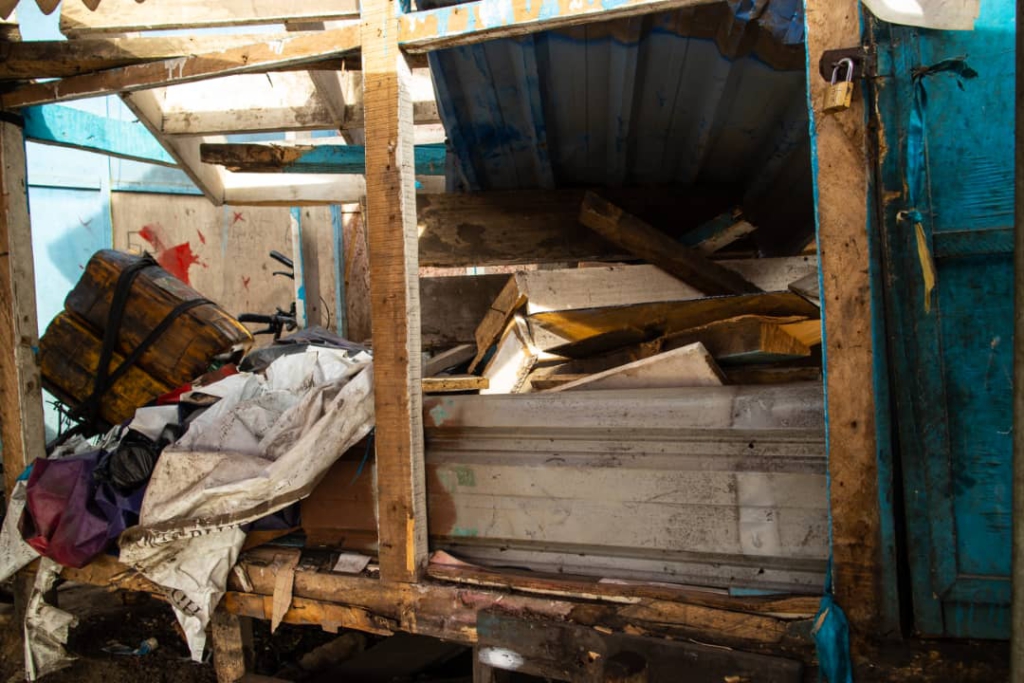
The Vice President promised government would soon start constructing 32 community toilet facilities, 80 community bathhouses and kindergarten facilities in the community.
“Where is the development the Vice President promised us? Apart from the road in front of the market which was done before he came here, what else has happened here? That was a query from Prince Kwakye, a resident whose building was also destroyed.
The coronavirus outbreak should remind government of Ghana to invest more in the urban poor and fulfill many promises made to the people of Old Fadama. If the people of Old Fadama matter just like the people of East Legon and Cantonment, then the time to improve their living conditions should be today and not tomorrow.

